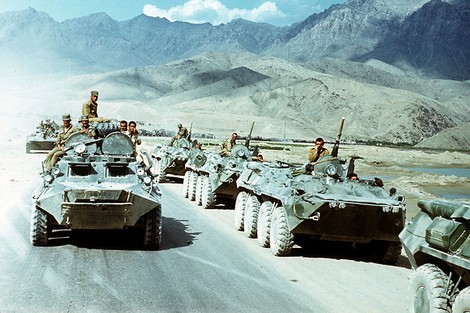Your podcast discovery platform
Curious minds select the most fascinating podcasts from around the world. Discover hand-piqd audio recommendations on your favorite topics.

piqer for: Technology and society Global finds Globalization and politics
Emran Feroz is an Afghan-Austrian journalist currently based in Stuttgart, Germany. He is regularly writing from Afghanistan, often focusing on the Middle East, Central Asia, drone warfare, refugee policies and human rights. Emran is writing in both German and English. His work has already appeared in international media outlets such as Al Jazeera, The Intercept, Alternet, The Atlantic or the New York Times and in various German and Austrian news papers and magazines.
In Afghanistan, Dark Ages Began With A Communist Coup
Last Friday, on April 27, we faced the 40th anniversary of the Communist coup in Afghanistan. Back then, the Afghan Communists staged a bloody "revolution" by killing the country's first president, Mohammad Daoud Khan, and started a brutal tyranny.
Unfortunately, many leftists around the world still try to rewrite history by spreading a very wrong narrative of these events. Since I noticed that many of their arguments are not much different than their ones on the war in Syria, I have written this piece to make some things clear.
Many of today's analyses still focus on the Islamic insurgency in Afghanistan, the Mujahideen, while it appears that the crimes of Kabul's Communist regime and its allies in Moscow are almost forgotten.
After the coup and during the years of the upcoming Soviet occupation, around two million Afghans were killed, mostly by Soviet forces. Whole villages were wiped out regularly, and between January and September 1986 alone at least 33,000 Afghans civilians were murdered.
A UN report from that time pointed out that the Communist regime in Kabul and its backers in Moscow had a deliberate strategy of mass killing and torturing civilians.
Many of the Communist leaders were brutal extremists, and even their "masters" in Moscow noticed that. They hunted and killed everyone who stood up against them, including their own party colleagues.
However, most of their victims were normal Afghan citizens. For that reason, most Afghans associate this time with bloodshed, mass murder and expulsion. Many, including many of my own family members, became refugees during that time. And for them, the whole misery of their country started specifically with this coup.
